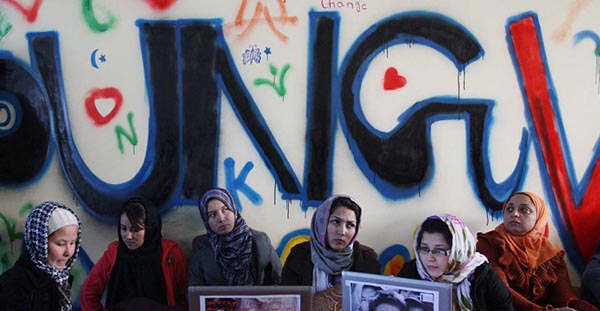Every year on March 8 we observe international women’s day. It is wonderful to see that in over 100 years since women’s day was first observed in 1909, immense progress has been made in furthering the plight of girls and women. Yet, today is also a reminder about the many injustices against women that still prevail in our societies.
Violence and abuse against women is one of the most prominent challenges of our century. This is not only in Afghanistan the case; it remains a worldwide phenomenon, crossing borders and generations. This is why this year women’s day is dedicated to speaking out against violence against women and girls. In many societies whether one is born a boy or a girl can have a decisive impact on physical well-being, chances of receiving an education and even determine life or death.
One of the most effective ways to end both individual suffering and boost economic growth and special development is to invest in education. From the World Bank to Goldman Sachs, many organisations recognise that empowering women and girls is the best way to fight global poverty and extremism. According to Larry Summers, former chief economist of World Bank, “investment in girl’s education may well be the highest return available in the developing world.”
In many countries around the world, including Afghanistan, women not oil or precious metals are the greatest unexploited resource. Women perform 66% of the world’s work and produce 50% of its food, yet they only earn 10% of world’s income and hold 1% property. If women had equal access to agricultural resources 100 to 150 million fewer people worldwide would go hungry every year. Women also spend more wisely; studies show that they invest more of their income in education and providing food for the families and communities.

Equal access to education and health services and the chance to become a full member of political and social life is everyone’s right. But gender equality is also a key factor in tackling conflict and economic hardship. Successfully integrating women in society and economy is a litmus test for successful transition of societies around the world, including Afghanistan. It is an essential ingredient of deep democracy.
Educating girls and including women fully in political, social and economic life also has a positive effect on stabilising societies. This is why gender equality needs to feature prominently in future political, economic and development discussions. Long-term stability and development in Afghanistan can only be achieved if issues such as violence, inherent discrimination and lack of access to health services and education are addressed. The many EU projects and initiatives around this issue are part of the comprehensive approach we adopt to development and conflict prevention.
To celebration International Women's Day, the EU in Afghanistan organized on its compound on 10 March the exhibition Siyah Sar of Afghan's artist Marzia Nazara. "Siyah Sar" means 'Black headed' and is an insulting term used to undermine women's abilities and pretend that women lack proper sense of understanding and reason. Reflecting on the text above it is clear that this unjust approach towards girls and women, and the need to empower them, is not just our moral duty, it is a solution to many of the greatest challenges to development and peace we face: from economic growth to reducing conflict and terrorism everyone stands to benefit from empowering women. This is why we must stand up for the cause of women and girls not just around Women's day, but every day.

